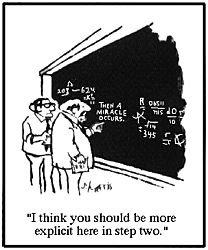The distortion of free markets
 You can hardly turn on the news or open a newspaper without hearing or seeing headlines about another government program to rectify the ills of the economy. I have to admit that as a somewhat conservative leaning person, I have found some comfort in government programs that are directed towards economic recovery. Lately, however, I’ve become increasingly uneasy about what it all means for the future.
You can hardly turn on the news or open a newspaper without hearing or seeing headlines about another government program to rectify the ills of the economy. I have to admit that as a somewhat conservative leaning person, I have found some comfort in government programs that are directed towards economic recovery. Lately, however, I’ve become increasingly uneasy about what it all means for the future.
Last weekend I spent some time with a friend of mine that is a bankruptcy attorney. I asked him if his business was “off the charts strong”. Surprisingly he said that it wasn’t. He explained that although there are more people than ever who are upside down on their mortgages and various loan payments, relatively few were prepared to file for bankruptcy. The reason is that the government is providing so much assistance and encouragement for lenders to reform and forgive debt that people don’t want to file for bankruptcy. He explained that this is a perfectly understandable response as bankruptcy is often seen as a solution of last resort and one that carries a negative social stigma. After all, why would anyone file for bankruptcy when there is a hope that all or a significant part of their loans might be forgiven.
My bankruptcy friend Bob further explained that this all too common response creates several disturbing concerns. First, it reinforces the notion that people can over extend themselves without having to face the consequence of certain repayment. Bob cited numerous instances where people that would otherwise face bankruptcy continue to spend and borrow with the belief that it will all be forgiven. Without an unpleasant backstop of bankruptcy, there is no incentive for fiscal responsibility.
Bob also cited frustration in not knowing how to staff his office in the coming year. Bankruptcy work requires a great deal of administrative effort associated with completing and filing forms, checking on statuses and similar procedural work. Government programs, unlike the free market, distort the market and make it extremely difficult for business people like Bob to plan and deploy resources. For example, it’s unclear whether he should lay off people that would otherwise be needed if not for the government programs, or whether he should hire staff in anticipation of present programs expiring. There is simply no rational way to allocate resources when the government is in charge of decisions that would otherwise be left to the free market.
I think that all of us in the automobile business got a dose of this lesson with Cash for Clunkers. This government program stimulated both new and used car sales in the fall. Many were left wondering to what extent they should replenish inventories. Would demand revert to pre-incentive levels, or would it create a hang-over effect? Will there be another government stimulus plan for automobiles in 2010? If so, when, how much and for how long? Although I don’t think another program is likely, you can begin to see the uncertain effect that government intervention has on businesses that are affected by such programs.
As one that believes whole heartedly in the power of the rational market, albeit with some reasonable levels of regulation, I think that we must all recognize the dangerous consequence of continued government market intervention. After all, we all know the disastrous consequences of central Soviet planning as well as the stifling effects of European style socialism. As our economy shows signs of recovery, it is now time for us to call for reasonable expiration of undue government intervention.

![Reblog this post [with Zemanta]](http://img.zemanta.com/reblog_e.png?x-id=4145b4ab-eaa5-48d4-b2d6-39f45ea62cbb)